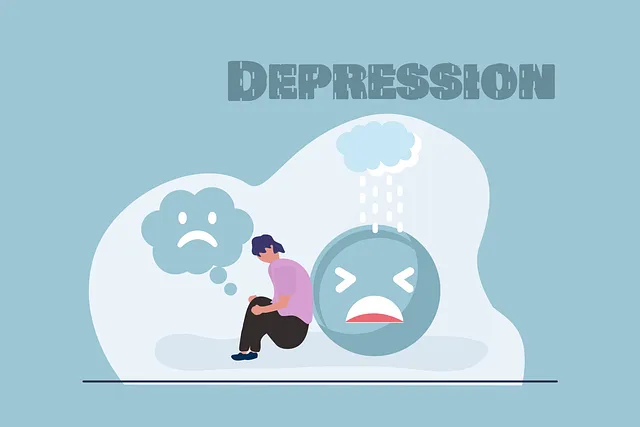Lone Tree Kaiser Permanente focuses on preventing healthcare provider burnout through early recognition of symptoms and implementing support systems. They prioritize self-care with initiatives like mindfulness meditation, community outreach, and stress reduction techniques. Open communication, anonymous feedback, and professional development opportunities further enhance well-being, fostering a supportive work environment for mental health care.
Burnout among healthcare providers is a growing concern, yet preventable. This article explores strategies to safeguard the well-being of medical professionals at Lone Tree Kaiser Permanente, focusing on recognizing early burnout signals and fostering supportive environments. We delve into evidence-based practices such as mindfulness, stress reduction techniques, and open communication channels that enhance resilience. By implementing these strategies, healthcare organizations can create a culture that prioritizes mental health, ensuring providers remain motivated and engaged in patient care.
- Recognizing Burnout Signals in Healthcare Workers
- Creating Supportive Work Environments at Lone Tree Kaiser Permanente
- Implementing Mindfulness and Stress Reduction Techniques
- Fostering Open Communication and Professional Development
Recognizing Burnout Signals in Healthcare Workers

Burnout is a significant concern within the healthcare industry, impacting both patient care and provider well-being. Recognizing the early signs is crucial for preventing this silent epidemic. Lone Tree Kaiser Permanente’s mental health experts emphasize that burnout manifests through physical, emotional, and cognitive symptoms. Healthcare workers may experience increased fatigue, irritability, difficulty concentrating, and a sense of detachment from their work—all indicators that should not be ignored.
The emotional healing processes involved in managing burnout are complex. Encouraging self-care practices and implementing support systems can aid in recovery. Mental Health Policy Analysis and Advocacy plays a vital role in creating an environment that prioritizes provider well-being, ensuring healthcare professionals have access to resources and services to address their mental health needs effectively.
Creating Supportive Work Environments at Lone Tree Kaiser Permanente

At Lone Tree Kaiser Permanente, creating supportive work environments is a top priority to combat burnout among healthcare providers. The organization understands that a positive and nurturing atmosphere can significantly impact staff well-being and job satisfaction. To achieve this, they’ve implemented various initiatives aimed at fostering a culture of support and mental health awareness. One notable strategy is their Community Outreach Program, which encourages employees to participate in local community events, strengthening the bond between the healthcare provider and the community they serve.
Additionally, Lone Tree Kaiser Permanente promotes mindfulness meditation sessions as part of their wellness programs. These sessions help providers manage stress, enhance focus, and improve overall mental health. By incorporating activities like Mindfulness Meditation and prioritizing Mental Health Awareness, the healthcare facility ensures that its staff has access to tools and resources to maintain a healthy work-life balance, thus preventing burnout.
Implementing Mindfulness and Stress Reduction Techniques

At Lone Tree Kaiser Permanente, recognizing and addressing healthcare provider burnout is a top priority. One effective strategy is to integrate mindfulness and stress reduction techniques into daily workflows. These practices empower medical professionals to cultivate mental resilience, enhancing their ability to cope with demanding work environments. Mindfulness meditation, for instance, can help providers find moments of calm amidst the hustle and bustle, improving focus and decision-making skills.
By incorporating stress management techniques like deep breathing exercises and yoga, healthcare workers can reduce anxiety levels and promote overall well-being. These practices not only benefit individual providers but also contribute to improved patient care. Public Awareness Campaigns Development initiatives focused on mental health play a crucial role in normalizing conversations around burnout, encouraging open dialogue, and fostering supportive work cultures within medical institutions.
Fostering Open Communication and Professional Development

At Lone Tree Kaiser Permanente, recognizing and addressing healthcare provider burnout is a top priority. Fostering open communication plays a pivotal role in this effort. Encouraging professionals to share their concerns, experiences, and ideas creates an environment where burnout can be identified early on. Regular check-ins, anonymous feedback mechanisms, and team meetings focused on well-being allow staff to express themselves without fear of judgment. This openness facilitates the implementation of tailored solutions that cater to individual needs, promoting a sense of belonging and support within the healthcare community.
Additionally, investing in professional development opportunities equips healthcare providers with Emotional Well-being Promotion Techniques and Mental Wellness Coaching Programs Development. Workshops, training sessions, and mentorship programs focused on stress management, resilience building, and work-life balance help professionals enhance their coping mechanisms. By nurturing both technical skills and emotional intelligence, Lone Tree Kaiser Permanente ensures that its healthcare providers feel valued, empowered, and capable of delivering high-quality care while maintaining their mental health.
Burnout among healthcare providers is a growing concern, but through proactive strategies like those implemented at Lone Tree Kaiser Permanente, we can create supportive work environments that foster resilience. By recognizing burnout signals early, integrating mindfulness practices, encouraging open communication, and promoting professional development, healthcare organizations can prevent staff exhaustion and enhance patient care. These comprehensive approaches not only benefit individual well-being but also revolutionize the mental health landscape for both patients and providers at Lone Tree Kaiser Permanente and beyond.






